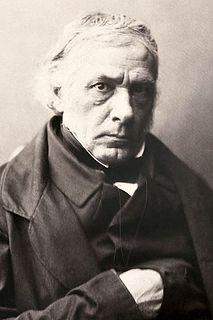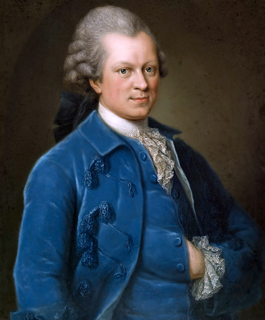A Quote by Ralph Waldo Emerson
This immediate dependence of language upon nature, this conversion of an outward phenomenon into a type of somewhat in human life,never loses its power to affect us. It is this which gives that piquancy to the conversation of a strong-natured farmer or backwoodsman, which all men relish.
Related Quotes
Many people think that when we practice agriculture, nature is helping us in our efforts to grow food. This is an exclusively human-centered viewpoint... we should instead, realize that we are receiving that which nature decides to give us. A farmer does not grow something in the sense that he or she creates it. That human is only a small part of the whole process by which nature expresses its being. The farmer has very little influence over that process... other than being there and doing his or her small part.
Testimony is the beginning of and a prerequisite to continuing conversion. Testimony is a point of departure; it is not an ultimate destination. Strong testimony is the foundation upon which conversion is established. Testimony alone is not and will not be enough to protect us in the latter-day storm of darkness and evil in which we are living.
As it is with spiritual discoveries and affections given at first conversion, so it is in all subsequent illuminations and affections of that kind; they are all transforming. There is a like divine power and energy in them as in the first discoveries; they still reach the bottom of the heart, and affect and alter the very nature of the soul, in proportion to the degree in which they are given. And a transformation of nature is continued and carried on by them to the end of life, until it is brought to perfection in glory.
Color, in the outward world, answers to feeling in man; shape, to thought; motion, to will. The dawn of day is the nearest outward likeness of an act of creation; and it is, therefore, also the closest type in nature for that in us which most approaches to creation--the realization of an idea by an act of the will.
All the wants which disturb human life, which make us uneasy to ourselves, quarrelsome with others, and unthankful to God, which weary us in vain labors and foolish anxieties, which carry us from project to project, from place to place in a poor pursuit of we don't know what, are the wants which neither God, nor nature, nor reason hath subjected us to, but are solely infused into us by pride, envy, ambition, and covetousness.
The nineteenth century, utilitarian throughout, set up a utilitarian interpretation of the phenomenon of life which has come down to us and may still be considered as the commonplace of everyday thinking. ... An innate blindness seems to have closed the eyes of this epoch to all but those facts which show life as a phenomenon of utility
in addition to the conditions under which life is given to man on earth, and partly out of them, men constantly create their own, self-made conditions, which, their human origins notwithstanding, possess the same conditioning power as natural things. whatever touches or enters into a sustained relationship with human life immediately assumes the character of a condition of human existence. this is why men, no matter what they do, are always conditioned beings. whatever enters the human world of its own accord or is drawn into it by human effort becomes part of the human condition.










































